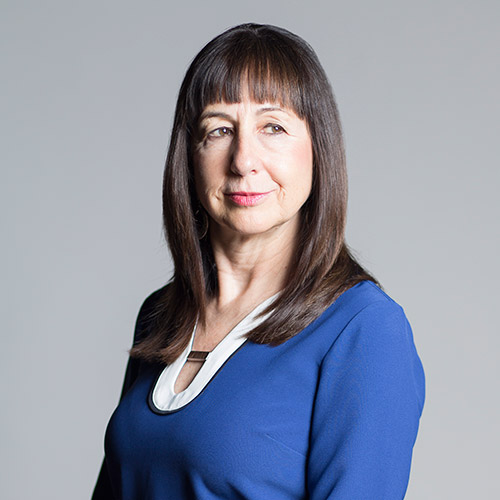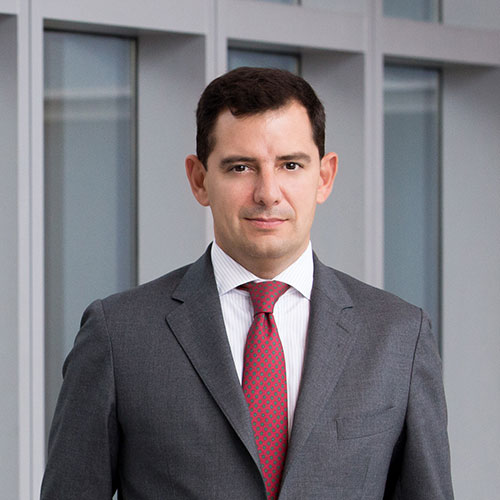At various points in her career, Luisa Menezes has been offered roles based in completely different parts of the world, and at each juncture she has been faced with a choice—stay put and play it safe or take a leap of faith that would uproot her family. She has always chosen the latter. The first such leap happened when she and her husband had two toddlers at home, and she was pregnant with a third baby.
Looking back now, as vice president and associate general counsel for Latin America and Canada at Philip Morris International, Menezes feels she and her husband always made the right decision, and her major takeaway is that part of being a good leader is not being afraid of a challenge.
Menezes has been with the tobacco company for nineteen years; she began her career in her home country of Portugal, working with a local company for four years before Philip Morris International acquired it in 1996. Now, she leads legal for all of Latin America and Canada, overseeing a team of lawyers who are spread out across the hemisphere.
The types of cases she and her team handle for the tobacco giant vary vastly day-to-day. She might be working on an employment-related matter on day, and taking adequate measures to comply with health warning regulations the next. Each country has different warning label requirements, and she must make sure the company is compliant everywhere its products are sold. Another day may revolve around a potential acquisition or joint venture agreement, and yet another may be related to commercial litigation.
Still, Menezes enjoys every part of what she does—especially helping to develop her team. “I’m not a good leader if I leave people behind,” she says. “I want everyone who works with me to be better equipped to do [his or her] job,” she says.
Menezes wants her team to think differently about their roles. “My ultimate goal is to move people from a reactive mode to a more proactive mode,” she says, explaining that this is not always a natural shift. “Lawyers are trained to come in after the fact, analyze a situation and solve problems.” Instead, she wants them to have a vision and be strategic from the outset. She asks her lawyers to study how they spend their time, understand what is low-value versus high-value work for the company, and figure out ways to minimize the former while maximizing the latter.
“Once you understand all that, you will start the process to streamline work and concentrate on what’s really important,” she says.
A proactive legal team, Menezes contends, is even more important on the global scale where legal trends, regulations, and business are dynamic are often shifting. “The world changes very rapidly these days. You have to be able to anticipate rather than always be running after trends,” she says.
“I’m not a good leader if I leave people behind. I want everyone who works with me to be better equipped to do [his or her] job.”
While legal work is at the core of her career, Menezes truly enjoys the leadership aspects of her job even more in recent years. Today, her job often includes responsibilities outside those of a traditional corporate lawyer, including helping her colleagues make important decisions.
“This is a highly regulated industry, so it’s only natural that lawyers are so involved in the business and advising,” Menezes says. “Our role goes beyond cases or just giving legal advice.”
Menezes studies the best decision-making practices, learning more about unconscious biases and how the brain works. When she advises her colleagues about a decision, they can feel assured that it is well researched and well reasoned.
She also speaks four languages—Portuguese, Spanish, French, and English—and constantly looks to learn new skills. As Philip Morris International continues to grow, Menezes intends to keep learning along with it.
Philip Morris International spun off from Altria Group in 2008 and now operates in more than 180 countries outside the United States with regional offices in New York, Hong Kong, and Switzerland. Managing many different countries means not only understanding their cultures, but also the different regulatory environments of each—and Menezes has learned a lot from the differences between countries around Latin America. “It’s enlightening to me,” she says. “It’s just amazing how we make so many assumptions of specific people and the cultures.” This applies to every corner of the globe, she reminds us.
Menezes claims that when she first started her career at a law firm in Portugal, it never occurred to her to leave her country, much less with her family in tow. She didn’t feel ready for that first big move, but it didn’t stop her from rising to the
challenge.
“Each time I’ve moved into a higher career level, I felt like I didn’t know enough and had to catch up,” she admits. That uncertainty, however, has worked to her advantage. “Being willing to try something new always kept me going and bringing new ideas to the table,” she says. “I love to learn. It’s my passion.”

